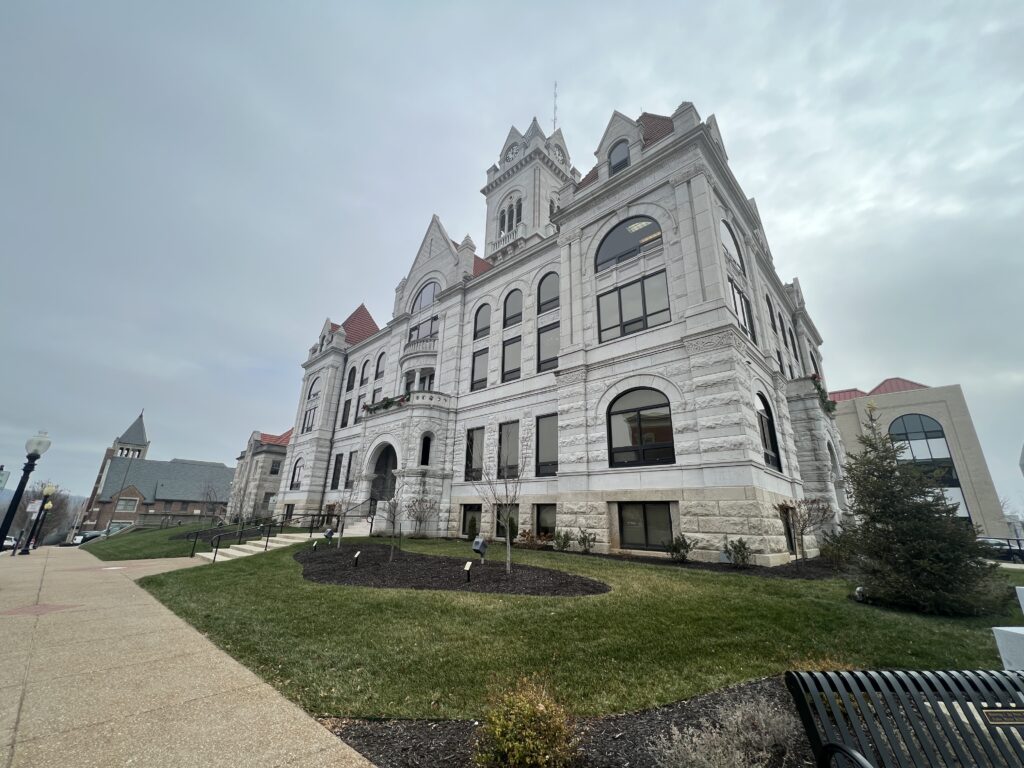Judge upholds Missouri law used by attorney general to challenge school mask rules

A Cole County judge on Friday rejected a challenge to a 2021 law used by Missouri’s attorney general to sue school districts over COVID-19 mask policies.
In a case that focused on whether lawmakers had put too much into the bill, rendering it unconstitutional, Judge Daniel Green decided that everything fit under the broad category of local government.
The city of Overland in St. Louis County sued after the bill was passed, arguing that a provision barring it from collecting fees to use right-of-way based on the linear distance unconstitutionally deprived it of revenue.
The law was also unconstitutional, lawyers for Overland argued during a December trial, because it violated the “single subject rule” and because it was a “special law” singling out a particular group.
Green delayed ruling in Overland’s lawsuit until the Missouri Supreme Court reviewed one of his previous cases where he upheld a law preempting local ordinances regulating large farming operations.
The court upheld Green’s decision on CAFO regulations in march.
Overland’s attorney, Greg Dohrman of Cunningham, Vogel and Rost, did not respond immediately Tuesday morning to a request for comment on the decision.
In the Overland case, attorneys argued that the lost revenue from fees based on linear distance would make it more difficult to fund maintenance and upgrades to the city’s right-of-way. They argued it violated the constitution, which bars lawmakers from imposing new duties on local governments without paying the cost.
But Green found that the bill imposes no duties and the revenue from the fees is not a tax covered by the provisions of the constitution’s Hancock Amendment. Instead, eliminating the fees promotes the public interest in expanded internet access, Green wrote.
“By eliminating linear foot fees, which would be substantially greater in rural areas due to the longer distances between residences and businesses, the General Assembly has incentivized expanded access,” Green wrote.
He also turned down the argument that the bill had been improperly expanded from its original purpose by revisions to the bill’s title.
The original three-page bill was filed to implement a “Missouri local government expenditure database,” but was expanded to 49 pages and 51 sections, and the title was changed to just “relating to local government.”
The bill has provisions about scrap metal dealers, catalytic converter theft and salaries for court reporters along with limits on public health agencies in addition to the original sections on public expense.
The expanded title is not a violation of the constitution, Green wrote.
“The arguments are unavailing because ‘expanding the title of a bill to reflect the commonality of all the subjects contained in the bill is not a novel proposition’ and is constitutional,” he wrote, quoting a previous case.
Everything included in the bill relates directly or indirectly to local issues, Green wrote. The provisions about scrap dealers, catalytic converter theft and salaries for court reporters, while applicable statewide, impact local concerns, Green wrote.
The provisions about court operations are an example, he wrote.
“Domestic relations, child custody, probate and other inherently local matters are the bread and butter of the circuit courts,” Green wrote.
Miss Clipping Out Stories to Save for Later?
Click the Purchase Story button below to order a print of this story. We will print it for you on matte photo paper to keep forever.

